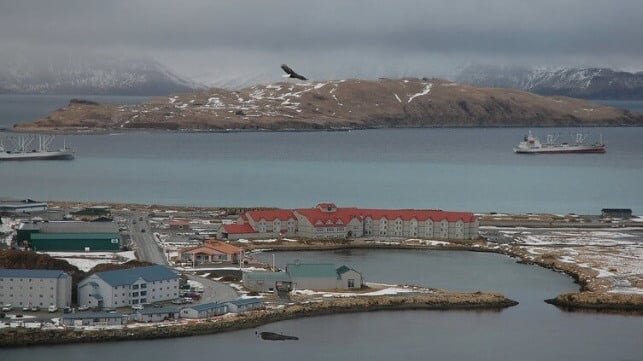Maersk’s Departure from Alaskan Ports Impacts Fishing Industry
Global shipping giant Maersk has delivered a blow to fishing interests in Alaska by announcing its decision to withdraw from two key ports on its transpacific service network. The Danish company revealed that it will suspend its calls at terminals in Dutch Harbor and Kodiak, primary export hubs for Alaska’s lucrative $1.5 billion pollock fishery. This move is part of Maersk’s strategy to enhance its product offerings and ensure network reliability.
The final westbound voyage out of Dutch Harbor will be conducted by the Danish-flagged container feeder, Cape Sorel, on February 11. Dutch Harbor, known as one of the largest commercial fishing ports in the U.S., serves as a crucial gateway for seafood exports to European and Asian markets. In 2022 alone, the port witnessed the landing of 613.5 million pounds of seafood from various species. Similarly, Kodiak, another prominent fishing port, houses a significant fleet and multiple canneries, with pollock being a predominant species due to its high abundance in the Gulf of Alaska.
Despite the significance of these ports to the fishing industry, Alaska has faced challenges in recent years due to declines in key commercial species like snow crab, chum salmon, and king salmon. These factors, alongside other economic pressures, have led to a 50% decrease in profitability for the industry since 2021, as reported by NOAA Fisheries.
Top image: Reefer ships at Dutch Harbor, Alaska (Delta Whiskey / CC BY ND 2.0)

